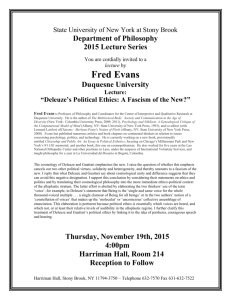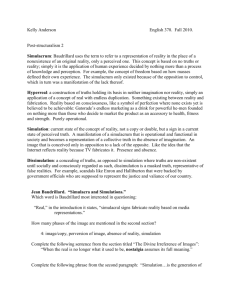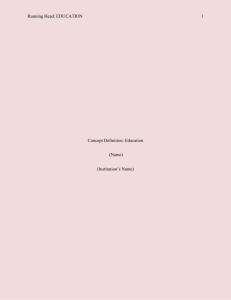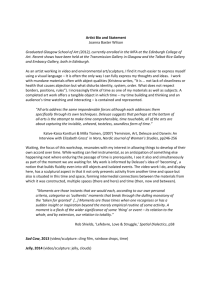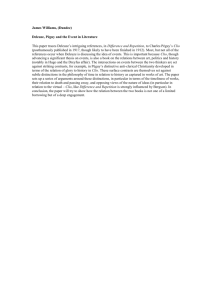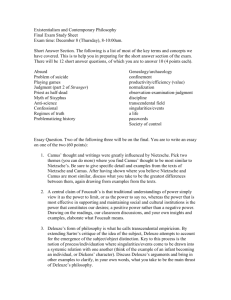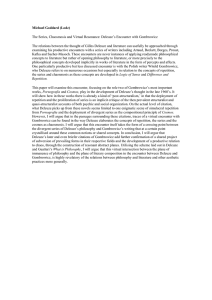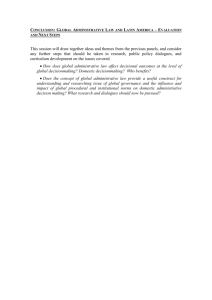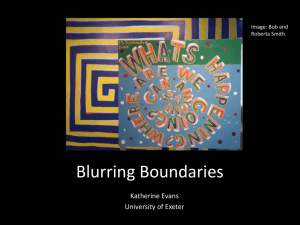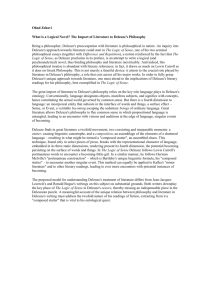Mythopoesis and the Programmatic Character of Literature vs
advertisement
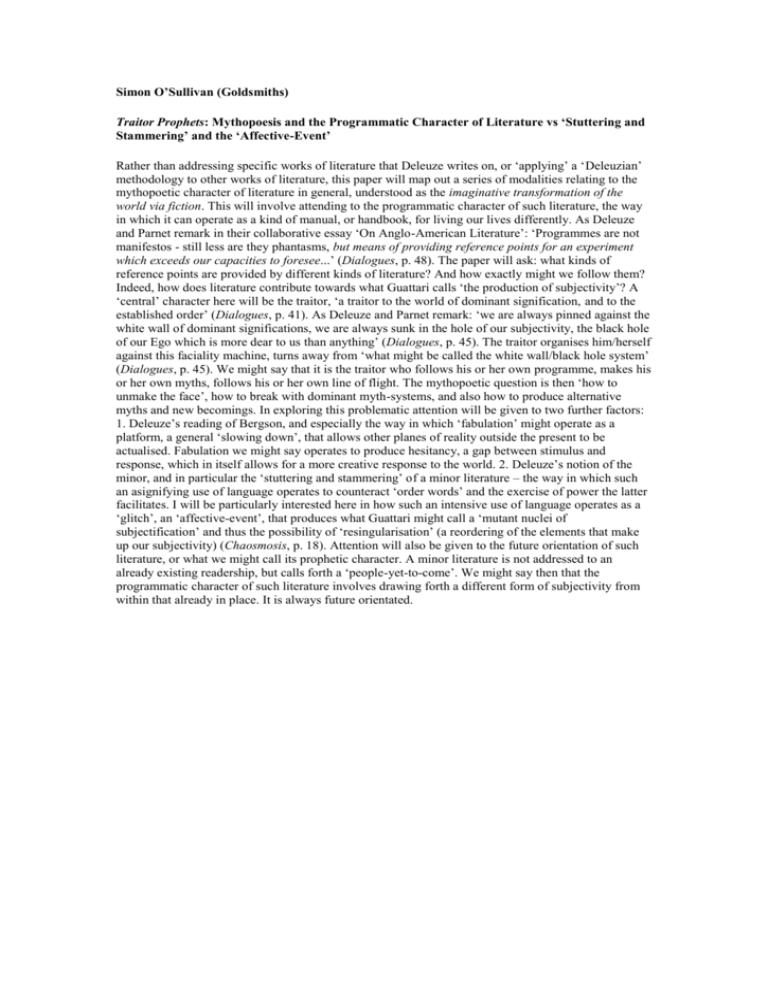
Simon O’Sullivan (Goldsmiths) Traitor Prophets: Mythopoesis and the Programmatic Character of Literature vs ‘Stuttering and Stammering’ and the ‘Affective-Event’ Rather than addressing specific works of literature that Deleuze writes on, or ‘applying’ a ‘Deleuzian’ methodology to other works of literature, this paper will map out a series of modalities relating to the mythopoetic character of literature in general, understood as the imaginative transformation of the world via fiction. This will involve attending to the programmatic character of such literature, the way in which it can operate as a kind of manual, or handbook, for living our lives differently. As Deleuze and Parnet remark in their collaborative essay ‘On Anglo-American Literature’: ‘Programmes are not manifestos - still less are they phantasms, but means of providing reference points for an experiment which exceeds our capacities to foresee...’ (Dialogues, p. 48). The paper will ask: what kinds of reference points are provided by different kinds of literature? And how exactly might we follow them? Indeed, how does literature contribute towards what Guattari calls ‘the production of subjectivity’? A ‘central’ character here will be the traitor, ‘a traitor to the world of dominant signification, and to the established order’ (Dialogues, p. 41). As Deleuze and Parnet remark: ‘we are always pinned against the white wall of dominant significations, we are always sunk in the hole of our subjectivity, the black hole of our Ego which is more dear to us than anything’ (Dialogues, p. 45). The traitor organises him/herself against this faciality machine, turns away from ‘what might be called the white wall/black hole system’ (Dialogues, p. 45). We might say that it is the traitor who follows his or her own programme, makes his or her own myths, follows his or her own line of flight. The mythopoetic question is then ‘how to unmake the face’, how to break with dominant myth-systems, and also how to produce alternative myths and new becomings. In exploring this problematic attention will be given to two further factors: 1. Deleuze’s reading of Bergson, and especially the way in which ‘fabulation’ might operate as a platform, a general ‘slowing down’, that allows other planes of reality outside the present to be actualised. Fabulation we might say operates to produce hesitancy, a gap between stimulus and response, which in itself allows for a more creative response to the world. 2. Deleuze’s notion of the minor, and in particular the ‘stuttering and stammering’ of a minor literature – the way in which such an asignifying use of language operates to counteract ‘order words’ and the exercise of power the latter facilitates. I will be particularly interested here in how such an intensive use of language operates as a ‘glitch’, an ‘affective-event’, that produces what Guattari might call a ‘mutant nuclei of subjectification’ and thus the possibility of ‘resingularisation’ (a reordering of the elements that make up our subjectivity) (Chaosmosis, p. 18). Attention will also be given to the future orientation of such literature, or what we might call its prophetic character. A minor literature is not addressed to an already existing readership, but calls forth a ‘people-yet-to-come’. We might say then that the programmatic character of such literature involves drawing forth a different form of subjectivity from within that already in place. It is always future orientated.
